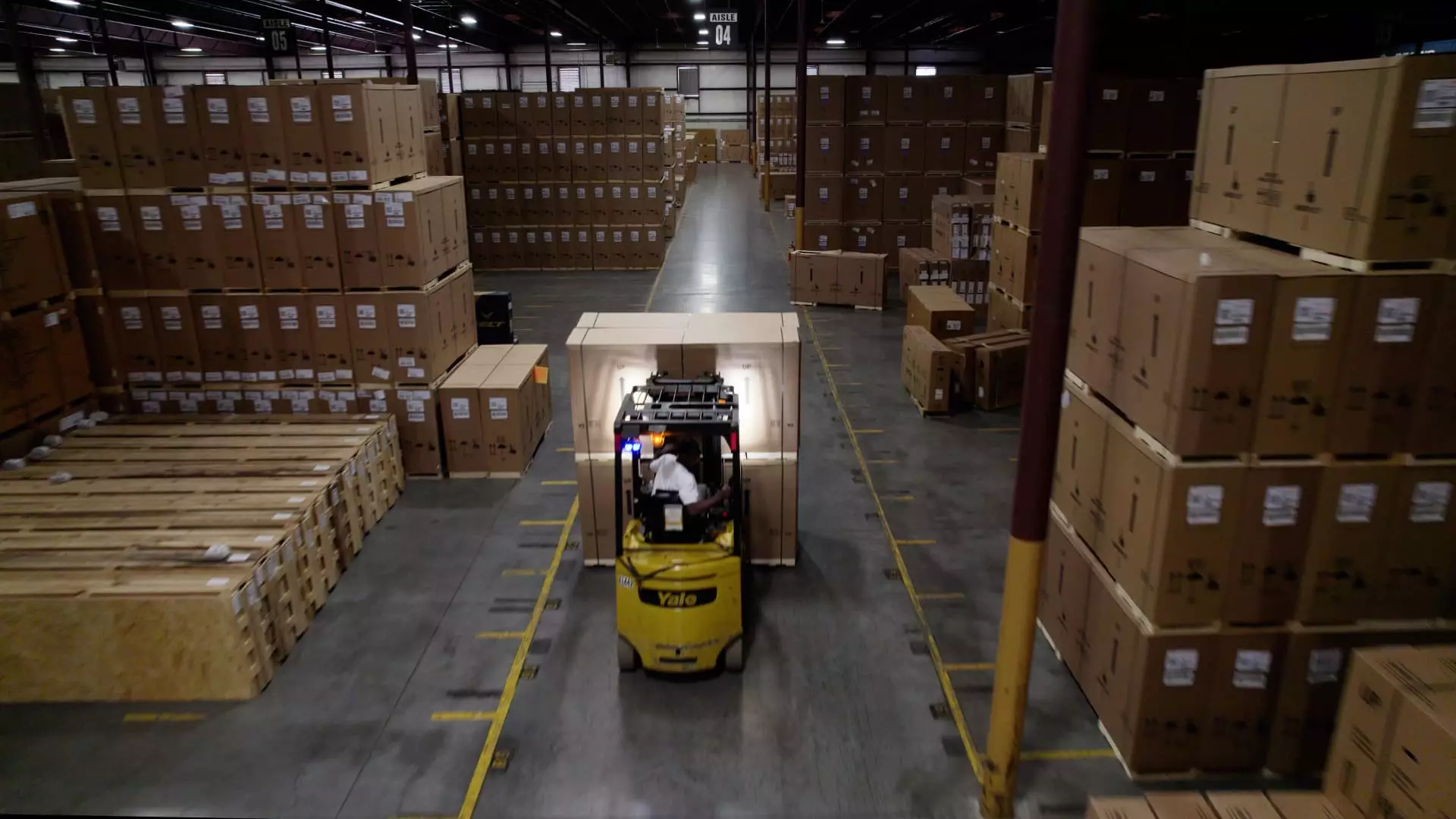In an era where economic instability and unpredictable trade policies dominate the landscape, corporations have increasingly turned to foreign trade zones (FTZs) and bonded warehouses as financial fortresses. At first glance, these mechanisms seem to be prudent, strategic tools allowing businesses to navigate around mounting tariffs and trade uncertainties. However, a closer examination reveals that this reliance raises profound questions about sustainability and fairness within the broader economic system. These zones are often celebrated as cost-saving havens, but in reality, they function as temporary shelters—capturing cash flow but masking underlying vulnerabilities that could threaten economic stability in the long run.
The historical roots of FTZs, dating back to the Great Depression, highlight their original purpose: to stimulate trade and mitigate the damaging effects of extreme protectionism. Yet, today’s use of these zones has morphed into sophisticated financial instruments that simply delay the inevitable. Companies store imports duty-free within FTZs and bonded warehouses, effectively creating a desynchronized tax schedule that can last indefinitely. While this provides short-term liquidity relief, it fosters a distorted view of economic activity—encouraging over-reliance on flux and delay rather than fostering genuine efficiency or innovation.
Moreover, the strategic use of FTZs exposes vulnerabilities rooted in policy volatility. Recent executive orders have disrupted longstanding benefits like the inverted tariff privilege, forcing companies like Regent Tek Industries to absorb higher costs due to the loss of duty-savings. This situation underscores a critical flaw: dependence on government policies creates an unstable foundation. Businesses that built their supply chains around these zones now face the threat of rising costs, which ripple through the economy, risking job cuts and price hikes on essential goods. FTZs, once perceived as a permanent safeguard, now appear as fragile scaffolding—liable to collapse under policy shifts.
The Cost of Gaming the System
While corporations may see FTZs and bonded warehouses as strategic tools to optimize cash flow, this approach invites a broader debate about fairness and social responsibility. By exploiting these zones, companies manipulate the tax system, reducing their contribution to public revenue and shifting the tax burden onto other sectors or consumers. This financial engineering of sorts, while legal, fosters a perception of inequality. The wealthy and powerful manipulate the rules to preserve profits, often at the expense of smaller businesses or consumers who ultimately bear the costs of inflated prices or reduced government services.
This strategy also risks creating a form of economic stagnation. When firms prioritize delaying tariffs over investing in domestic innovation or infrastructure, they undermine the competitive strength of their industries. The seemingly advantageous delay turns into a crutch—a dependence that deters forward-looking investment. It disguises an inability or unwillingness to adapt to a rapidly changing trade environment, leading to complacency. Over time, this could erode the very competitive edge that these companies seek to preserve.
Furthermore, the global implications extend beyond individual corporations. As dominant players leverage FTZs to sidestep tariffs, they contribute to a race to the bottom in trade ethics. Countries may feel compelled to retaliate or implement stricter tariffs, escalating trade conflicts that threaten to spiral into full-blown trade wars. Such cycles of retaliation create a dangerous environment where economic growth becomes a zero-sum game, and the genuine pursuit of fair, mutually beneficial trade is sidelined.
Lessons for a Responsible Future
The reliance on FTZs reflects a broader systemic issue: the failure of current trade policies to adequately address the complexities of modern manufacturing and global supply chains. Instead of perpetually chasing short-term financial fixes, a more responsible approach would involve rethinking trade policies to promote transparency and fairness. Governments should incentivize domestic innovation, investment in infrastructure, and sustainable manufacturing practices rather than enabling corporate loopholes that delay the inevitable.
For businesses, embracing a responsible long-term outlook means moving beyond simple financial engineering to build resilient supply chains rooted in genuine value creation. Relying on temporary tax shelters breeds complacency and risks future destabilization, especially as global trade tensions persist. Instead, companies should actively participate in shaping fairer, balanced trade agreements that consider the needs of workers, consumers, and the environment.
The real challenge lies in balancing economic pragmatism with ethical responsibility. FTZs can serve legitimate purposes when used judiciously, but their overuse and abuse diminish the integrity of our economic systems. As policymakers, business leaders, and consumers become more aware of the broader implications, the hope is that the future of global trade will lean toward transparency, fairness, and sustainability—qualities sorely lacking in current practices that prioritize short-term gains over long-term stability.


Leave a Reply